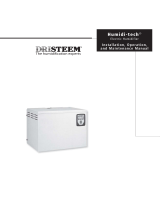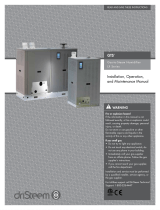8 | P a g e
About General Filters
Founded in 1937, General Filters, Inc. is a leading manufacturer of premium residential whole-house,
humidifiers, dehumidifiers, air cleaners, UV air purifiers, heat / energy ventilators, and fuel oil filters; a
complete line of dependable, high quality IAQ and heating solutions for today’s energy-efficient homes.
GeneralAire® indoor air quality products allow you to Breathe Healthier in the comfort of your own
home. Located in Novi, MI General Filters products (under the IAQ brand names GeneralAire® and Second
Wind™; and oil brand names General, Unifilter®, and Gar-Ber) are made in the USA!
We spend up to 90% of our time indoors, while experts say indoor air can be more polluted than outdoor air.
How Can Indoor Air Quality Products Help?
Air Cleaners
Quality air cleaners are very effective in removing airborne particulates; particulates that can trigger allergy
and asthma symptoms and cause long-term adverse health effects. Air cleaner filters are MERV rated
(Minimum Efficiency Reporting Value) with ratings from 1 to 16. The higher the MERV rating, the more
effective the filter is at removing smaller and more harmful particulates from the air.
Humidifiers
Dry air can have adverse effects not only on your health but your home and its contents. Dry air causes
cracks in wood floors, furniture, trim and musical instruments. Dry air can cause static electricity that can
damage expensive electronics. Dry sinuses can leave you susceptible to colds and flu. Allergy and asthma
triggers may increase. Dry air can increase heating bills by causing gaps in doors and windows that allow
cold air inside. Humidifiers add moisture levels in your home so that you and your family feel better, while
also protecting your home and contents.
Dehumidifiers
Like air that is too dry, air that's too moist can also be detrimental. Too much moisture can increase
incidents of mold, mildew and bacteria, also increasing allergy and asthma triggers. Your clothing and
bedding may feel moist and uncomfortable. Breathing may become more difficult. High humidity attracts
pests drawn to moisture. Whether you live in a humid climate or it’s simply that time of year, a dehumidifier
reduces excess moisture for greater comfort and healthier indoor air quality.
UV Air Purifiers
Bring the sun’s purification benefits indoors with the installation of a Second Wind™ UV Air Purifier. Ultra
violet light disables and destroys viruses and airborne pathogens, while eliminating molds and spores from
forming within the home’s HVAC system.












